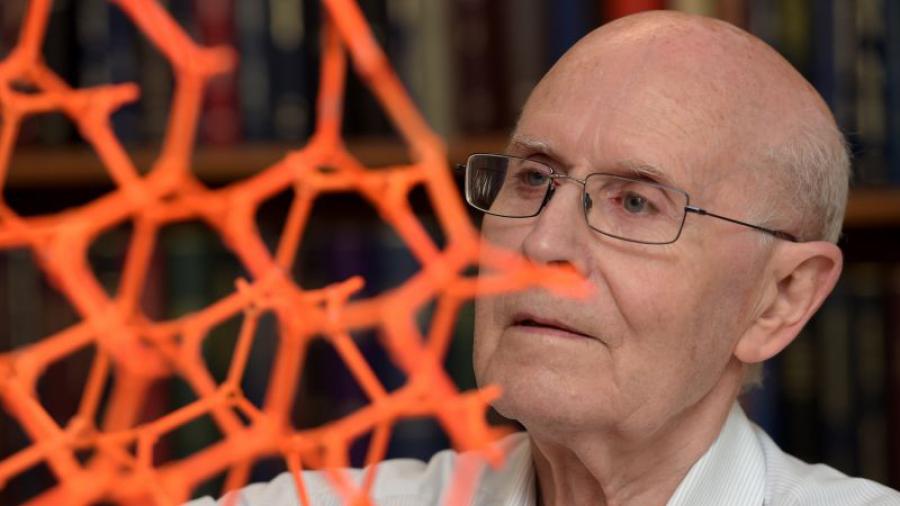Nobel Prize for chemistry to play a part in net zero transition

Professor Richard Robson by Paul Burston/University of Melbourne
Australian researchers are leading the way in developing new ways to support the global transition to net zero.
The NZEA congratulates University of Melbourne Professor Richard Robson as one of 3 scientists to be awarded the 2025 Nobel Prize in Chemistry for their development of metal-organic frameworks (MOFs).
MOFs are molecular structures that have large spaces within them, with the potential to capture gases and other chemicals.
MOFs are like a molecular Lego set. You can pair any metal ion on the periodic table with thousands of different organic bridging groups and obtain a MOF with properties tailored to your application.
MOFs can assist the transition to net zero by capturing and removing carbon dioxide from the atmosphere.
To achieve net zero, we must balance the emissions we produce with those we remove from the atmosphere. The technology around emission-removal continues to grow.
'Through the development of metal-organic frameworks, the laureates have provided chemists with new opportunities for solving some of the challenges we face,' the Royal Swedish Academy of Sciences, who determine the award recipients, said in a statement.
Professor Robson, who at age 88 continues to lecture at the University of Melbourne, is one of only 11 Australians who have won a Nobel Prize for their work.
He produced the first MOF in the early 1990s and according to the University of Melbourne, has continued to explore the different forms of MOFs ever since.
University of Melbourne Deputy Vice-Chancellor (Research) Professor Mark Cassidy said, 'This award will no doubt spark a flurry of further research to develop MOFs into products that could be crucial to the renewable energy revolution.'
Australian research institutions are continuing to provide value to the global transition to net zero.
The University of Sydney’s Net Zero Institute has partnered with Southern Green Gas to develop solar-powered direct air capture, a process which removes carbon dioxide from the atmosphere. The team is using metal-organic frameworks to capture and remove the carbon dioxide.
Global recognition of this research demonstrates the important role of science and innovation in supporting the transition to net zero.
